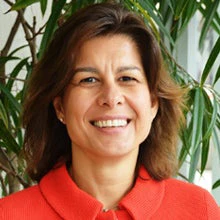Finance fuels economic growth and development. Yet, it is also clear that traditional funding sources – public finances, development assistance or banks loans – will not be sufficient to finance the Sustainable Development Goals.
Both developed and developing countries are turning to capital markets to find new sources of funding and to attract private sector financing, investment and expertise.
A key priority for the international development community is to unlock adequate private sector financing so that emerging market countries can meet their financing needs to fund strategic objectives, such as improving infrastructure.
We estimate that the amount of infrastructure financing covered by the private sector could be more than doubled, if countries harness the full potential of local capital markets.
At the World Bank Group, we are committed to marshal our expertise to increase the use of capital markets for investment financing. Helping countries develop government debt markets is vital to our goals of eliminating extreme poverty and boosting shared prosperity.
At a Spring Meetings’ event last month, government officials and private sector representatives discussed the opportunities and challenges of creating and investing in local capital markets.
Last week, we held our annual government bond markets conference which brought together senior government officials from mature and emerging economies, global and local investors and other stakeholders in local currency bond markets.
Deep and liquid government bond markets form the cornerstone for cost-effective funding by governments and for the development of efficient fixed-income markets that can support economic growth.
Participants from countries with different stages of debt-market and financial-sector development shared lessons from their efforts to develop government bond markets. These discussions will inform the scope of the World Bank’s work on government debt market development, which has been growing substantially in recent years.
Countries are asking for our assistance in the following areas:
- Diversifying domestic financial systems
- Developing private-sector fixed-income markets to finance infrastructure and housing
- Building a solid domestic institutional-investor base, including pension funds and insurance companies
In some countries, we focus on such targeted areas as linking local infrastructure to international clearing and settlement. In others, we focus on comprehensive programs for market development, including repo markets, designing a benchmark-building strategy, diversifying the investor base and implementing a secondary-market architecture to promote greater liquidity and more efficient price discovery.
In low-income and IDA countries, our work is focused on developing government bond markets, considering the markets’ limited potential to bridge financing needs of the private sector.
At the global level, we are focusing on developing innovative global products—recent examples include launching a retail debt program through mobile technology in Kenya and piloting the Issuer-Driven Exchange-Traded Fund (ETF) initiative with the Brazilian Treasury. The Issuer-Driven ETF initiative supports the development of local currency bond markets through an innovative Government Bond ETF structure we designed in consultation with industry leaders to enhance the viability of ETFs in emerging markets. We help structure the product, observing minimum standards. And the government hires a private investment manager to manage the ETF and to use a trade mark created by the World Bank (“the Issuer-Driven ETF trademark).
We also focus on promoting cross-country dialogue and disseminating knowledge products. For example, we have produced a series of background notes on the Design of Issuance Plans for Government Securities, Primary Dealer Systems, Electronic Trading Platforms, Buybacks and Switches, Securities Lending Facilities and Repo Markets.
Thus, we are fully committed to supporting countries to develop deeper, more liquid and resilient government securities markets. We are doing so through our traditional advisory services as well as by strengthening our footprint in the design and launch of products that could play a catalytic role in capital market development.
We hope that our involvement in this area will help mobilize additional private sector resources and expertise.
It is now the time for all stakeholders to rethink capital development efforts in emerging economies .
Photo: Gerardo Pesantez / World Bank



Join the Conversation